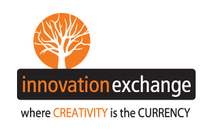
Interoperability is a characteristic of a product or system to work with other products or systems. While the term was initially defined for information technology or systems engineering services to allow for information exchange, a broader definition takes into account social, political, and organizational factors that impact system-to-system performance.

Innovation is the practical implementation of ideas that result in the introduction of new goods or services or improvement in offering goods or services. ISO TC 279 in the standard ISO 56000:2020 defines innovation as "a new or changed entity, realizing or redistributing value". Others have different definitions; a common element in the definitions is a focus on newness, improvement, and spread of ideas or technologies.
A value network is a graphical illustration of social and technical resources within/between organizations and how they are utilized. The nodes in a value network represent people or, more abstractly, roles. The nodes are connected by interactions that represent deliverables. These deliverables can be objects, knowledge or money. Value networks record interdependence. They account for the worth of products and services. Companies have both internal and external value networks.
Commons-based peer production (CBPP) is a term coined by Harvard Law School professor Yochai Benkler. It describes a model of socio-economic production in which large numbers of people work cooperatively; usually over the Internet. Commons-based projects generally have less rigid hierarchical structures than those under more traditional business models.
User innovation refers to innovation by intermediate users or consumer users, rather than by suppliers. This is a concept closely aligned to co-design and co-creation, and has been proven to result in more innovative solutions than traditional consultation methodologies.
Open innovation is a term used to promote an information age mindset toward innovation that runs counter to the secrecy and silo mentality of traditional corporate research labs. The benefits and driving forces behind increased openness have been noted and discussed as far back as the 1960s, especially as it pertains to interfirm cooperation in R&D. Use of the term 'open innovation' in reference to the increasing embrace of external cooperation in a complex world has been promoted in particular by Henry Chesbrough, adjunct professor and faculty director of the Center for Open Innovation of the Haas School of Business at the University of California, and Maire Tecnimont Chair of Open Innovation at Luiss.
Social innovations are new social practices that aim to meet social needs in a better way than the existing solutions, resulting from - for example - working conditions, education, community development or health. These ideas are created with the goal of extending and strengthening civil society. Social innovation includes the social processes of innovation, such as open source methods and techniques and also the innovations which have a social purpose—like activism, crowdfunding, time-based currency, telehealth, cohousing, virtual volunteering, microcredit, or distance learning. There are many definitions of social innovation, however, they usually include the broad criteria about social objectives, social interaction between actors or actor diversity, social outputs, and innovativeness. Different definitions include different combinations and different number of these criteria. Transformative social innovation not only introduces new approaches to seemingly intractable problems, but is successful in changing the social institutions that created the problem in the first place.

Crowdsourcing involves a large group of dispersed participants contributing or producing goods or services—including ideas, votes, micro-tasks, and finances—for payment or as volunteers. Contemporary crowdsourcing often involves digital platforms to attract and divide work between participants to achieve a cumulative result. Crowdsourcing is not limited to online activity, however, and there are various historical examples of crowdsourcing. The word crowdsourcing is a portmanteau of "crowd" and "outsourcing". In contrast to outsourcing, crowdsourcing usually involves less specific and more public groups of participants.
Co-creation, in the context of a business, refers to a product or service design process in which input from consumers plays a central role from beginning to end. Less specifically, the term is also used for any way in which a business allows consumers to submit ideas, designs or content. This way, the firm will not run out of ideas regarding the design to be created and at the same time, it will further strengthen the business relationship between the firm and its customers. Another meaning is the creation of value by ordinary people, whether for a company or not. The first person to use the "Co-" in "co-creation" as a marketing prefix was Koichi Shimizu, professor of Josai University, in 1979. In 1979, "co-marketing" was introduced at the Japan Society of Commerce's national conference. Everything with "Co" comes from here.
Crowdcasting is the combination of broadcasting and crowdsourcing. The process of crowdcasting uses a combination of push and pull strategies first to engage an audience and build a network of participants and then harness the network for new insights. Those insights are then used to shape broadcast programming. These insights and concepts can include new product ideas, new service ideas, new branding messages, or even scientific breakthroughs. These insights are extracted from participants' submissions.
A knowledge market is a mechanism for distributing knowledge resources. There are two views on knowledge and how knowledge markets can function. One view uses a legal construct of intellectual property to make knowledge a typical scarce resource, so the traditional commodity market mechanism can be applied directly to distribute it. An alternative model is based on treating knowledge as a public good and hence encouraging free sharing of knowledge. This is often referred to as attention economy. Currently there is no consensus among researchers on relative merits of these two approaches.
Companies whose business centers on the development of open-source software employ a variety of business models to solve the challenge of making profits from software that is under an open-source license. Each of these business strategies rest on the premise that users of open-source technologies are willing to purchase additional software features under proprietary licenses, or purchase other services or elements of value that complement the open-source software that is core to the business. This additional value can be, but not limited to, enterprise-grade features and up-time guarantees to satisfy business or compliance requirements, performance and efficiency gains by features not yet available in the open source version, legal protection, or professional support/training/consulting that are typical of proprietary software applications.
Know-how trading is a web-based research and design phenomenon related to open innovation and crowdsourcing. It denotes fee-based knowledge markets that treat knowledge and expertise as commodities that can be traded for financial gain. It therefore differs from other information markets such as Yahoo! Answers in that solution providers are financially rewarded for their efforts. The challenges set therefore tend to be more focused, and solutions more detailed and lengthy.
Communities that support innovation have been referred to as communities of innovation (CoI), communities for innovation, innovation communities, open innovation communities, and communities of creation.
Crowdsourcing software development or software crowdsourcing is an emerging area of software engineering. It is an open call for participation in any task of software development, including documentation, design, coding and testing. These tasks are normally conducted by either members of a software enterprise or people contracted by the enterprise. But in software crowdsourcing, all the tasks can be assigned to or are addressed by members of the general public. Individuals and teams may also participate in crowdsourcing contests.
Government crowdsourcing is a form of crowdsourcing employed by governments to better leverage their constituents' collective knowledge and experience. It has tended to take the form of public feedback, project development, or petitions in the past, but has grown to include public drafting of bills and constitutions, among other things. This form of public involvement in the governing process differs from older systems of popular action, from town halls to referendums, in that it is primarily conducted online or through a similar IT medium.

Local Motors was an American motor vehicle manufacturing company focused on low-volume manufacturing of open-source motor vehicle designs using multiple microfactories. It was founded in 2007 by John B. Rogers Jr and had headquarters in Phoenix, Arizona. The company's lineup before its closure included the Rally Fighter and their 3D-printed Strati and Swim vehicles. The company developed vehicles using 3D Printing and utilized vehicle designs provided by the online community. In 2016, the company introduced an autonomous electric-powered shuttle named Olli.

Open Data Now is a 2014 book on open data by Joel Gurin.

Open source is source code that is made freely available for possible modification and redistribution. Products include permission to use the source code, design documents, or content of the product. The open-source model is a decentralized software development model that encourages open collaboration. A main principle of open-source software development is peer production, with products such as source code, blueprints, and documentation freely available to the public. The open-source movement in software began as a response to the limitations of proprietary code. The model is used for projects such as in open-source appropriate technology, and open-source drug discovery.






